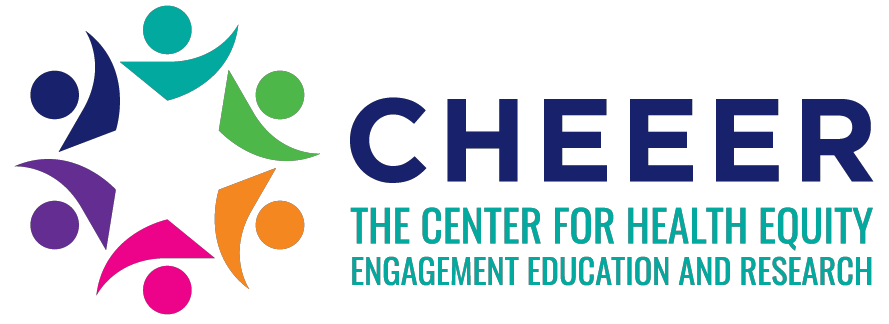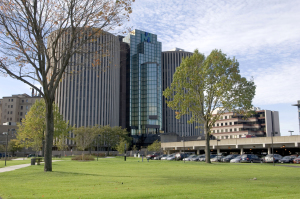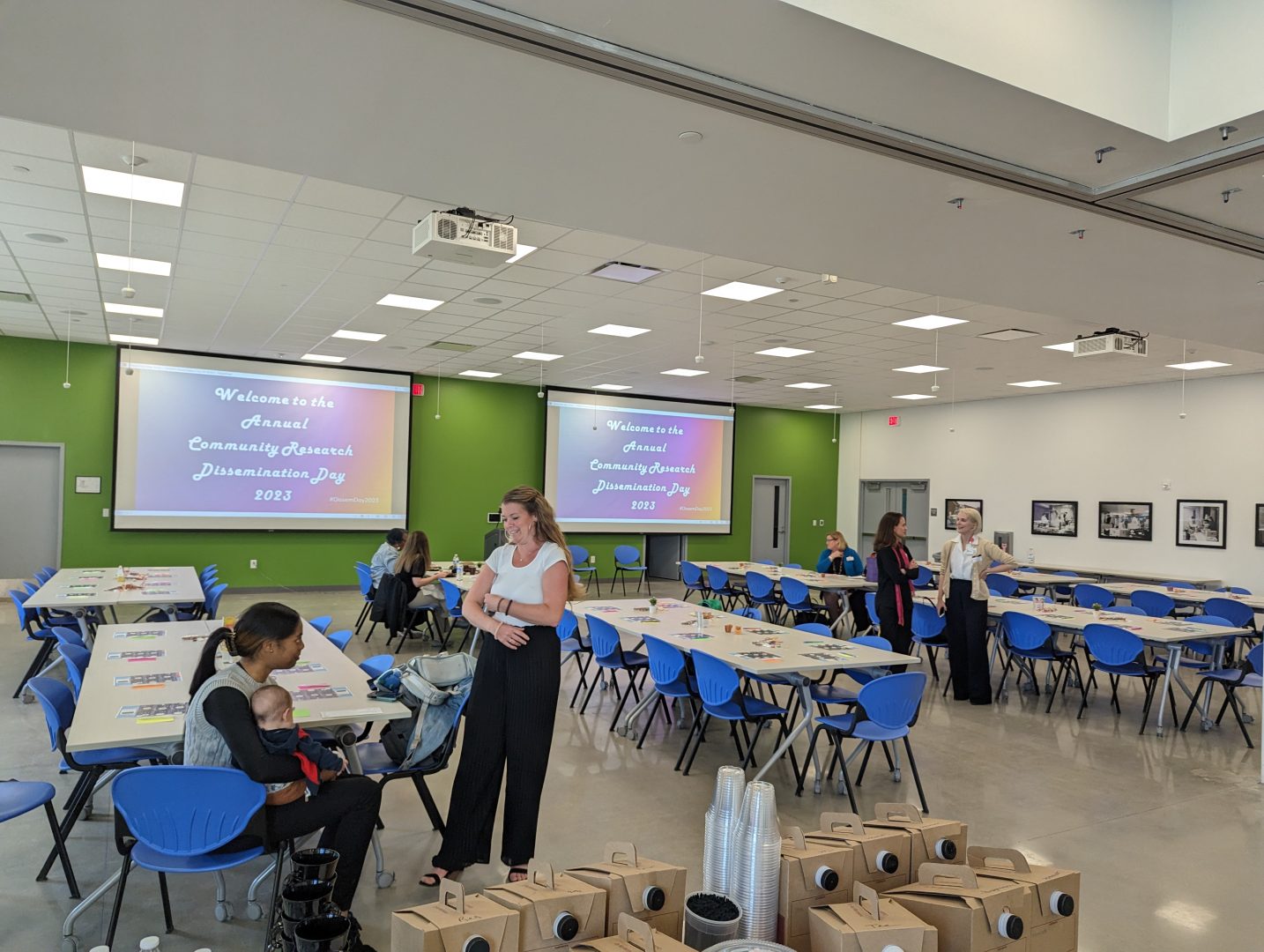
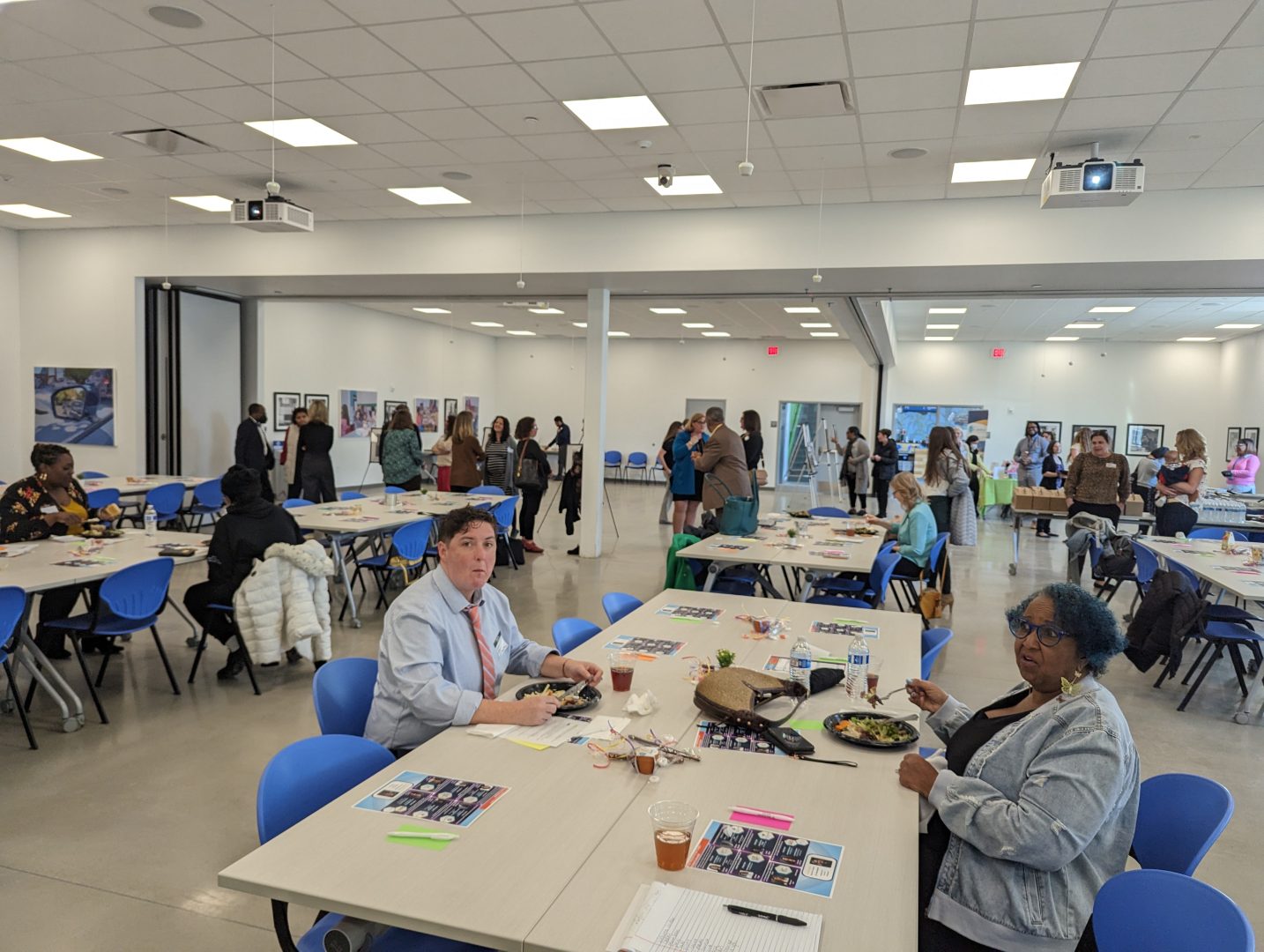
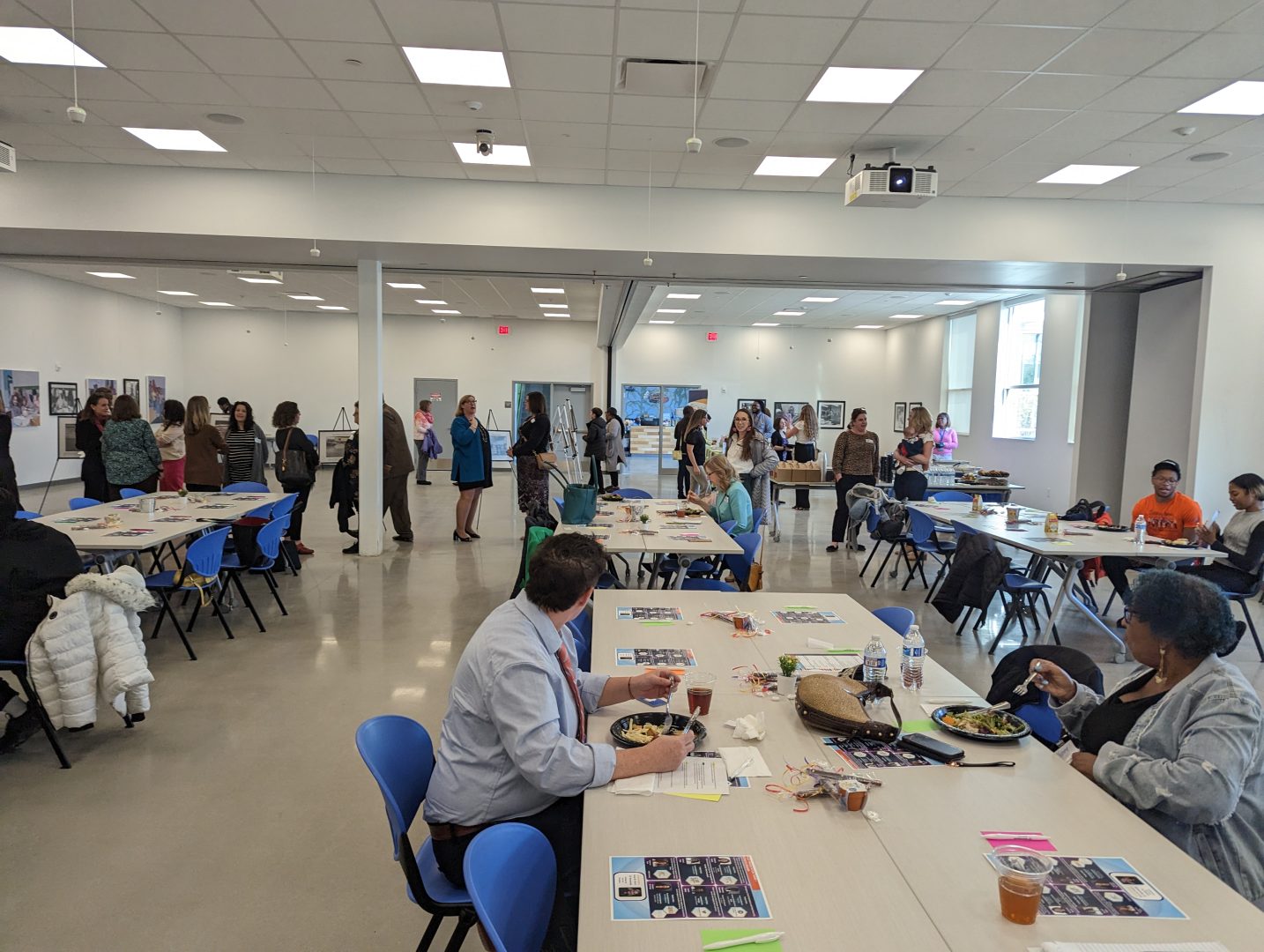
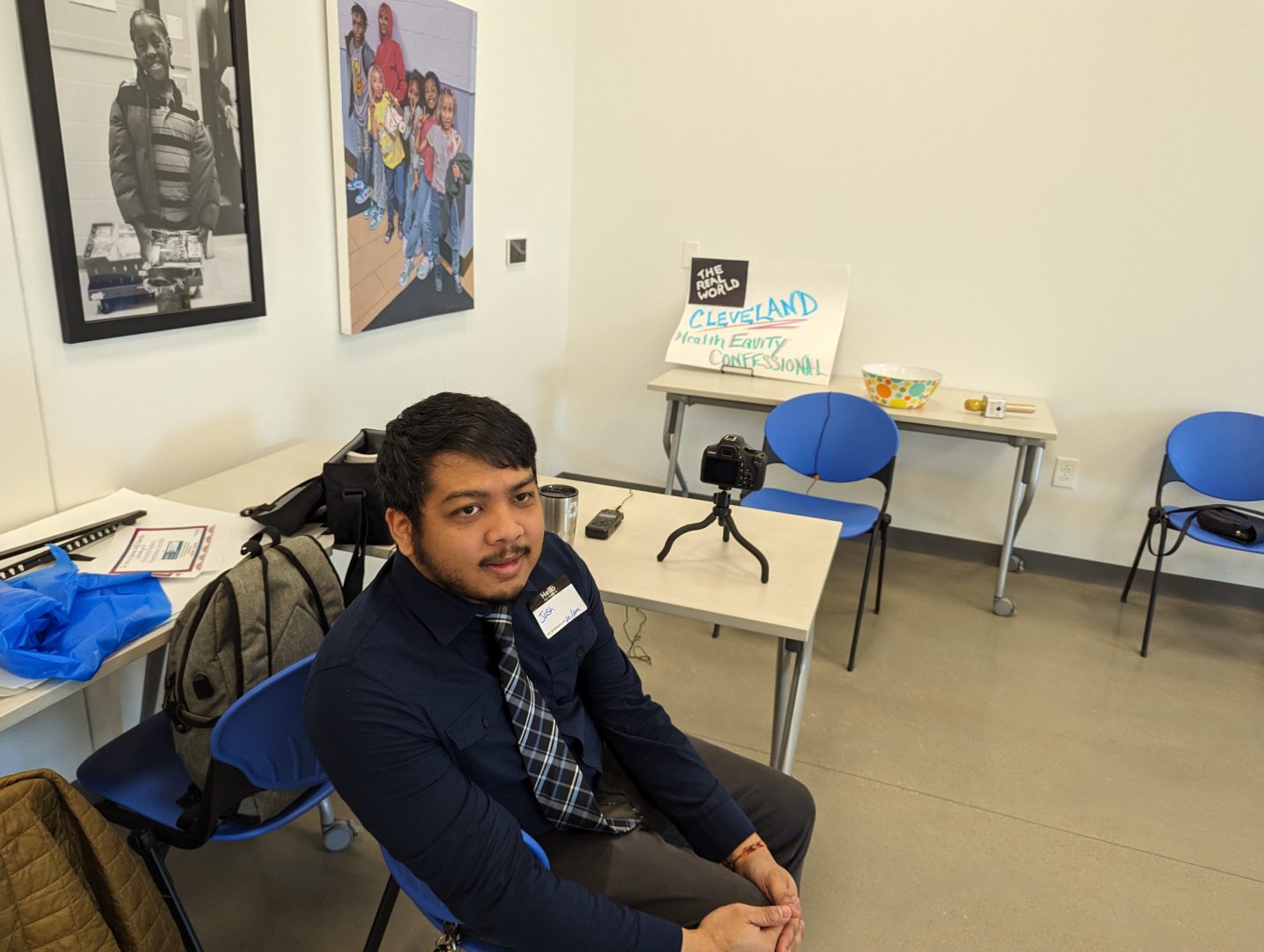
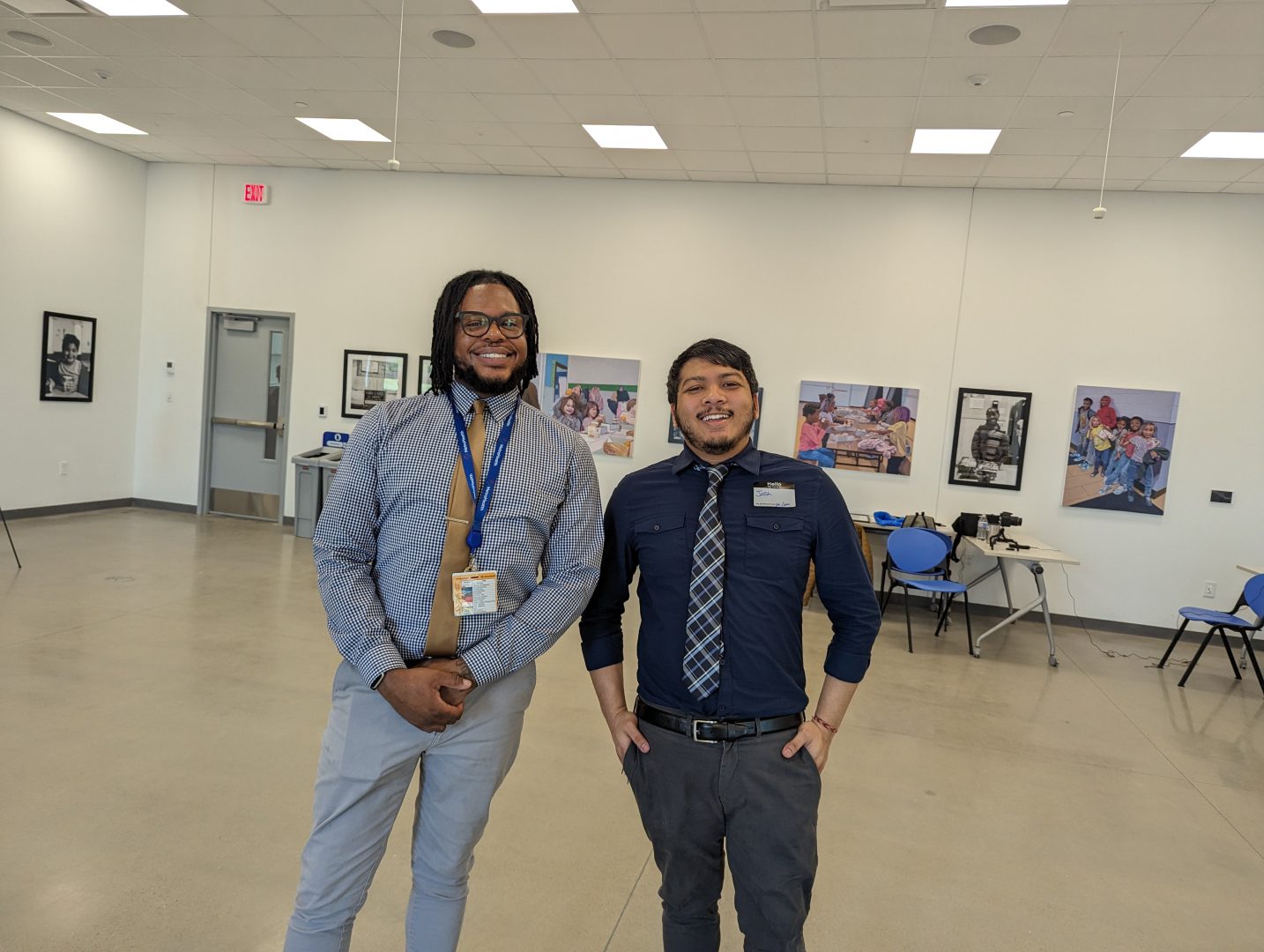
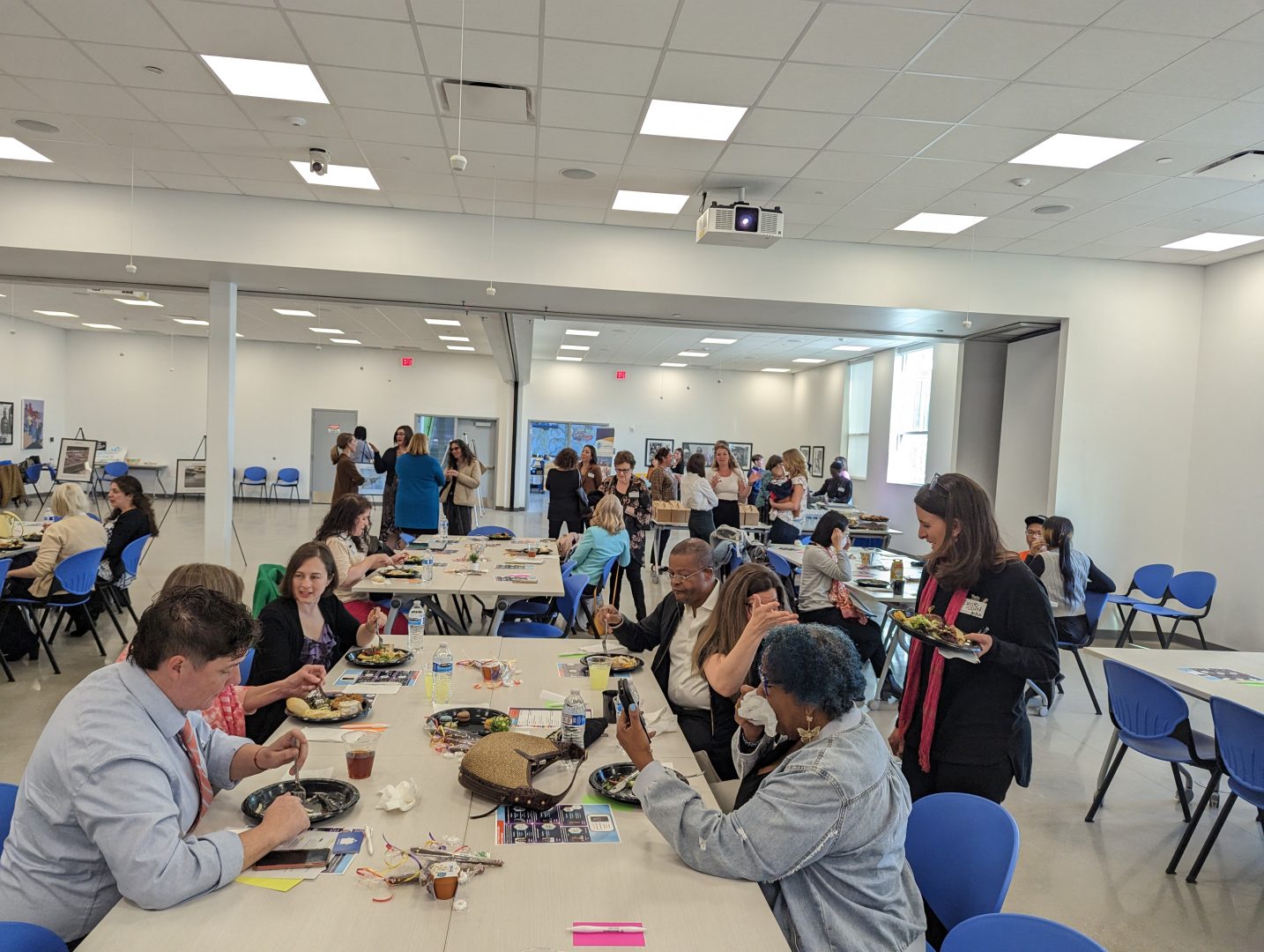
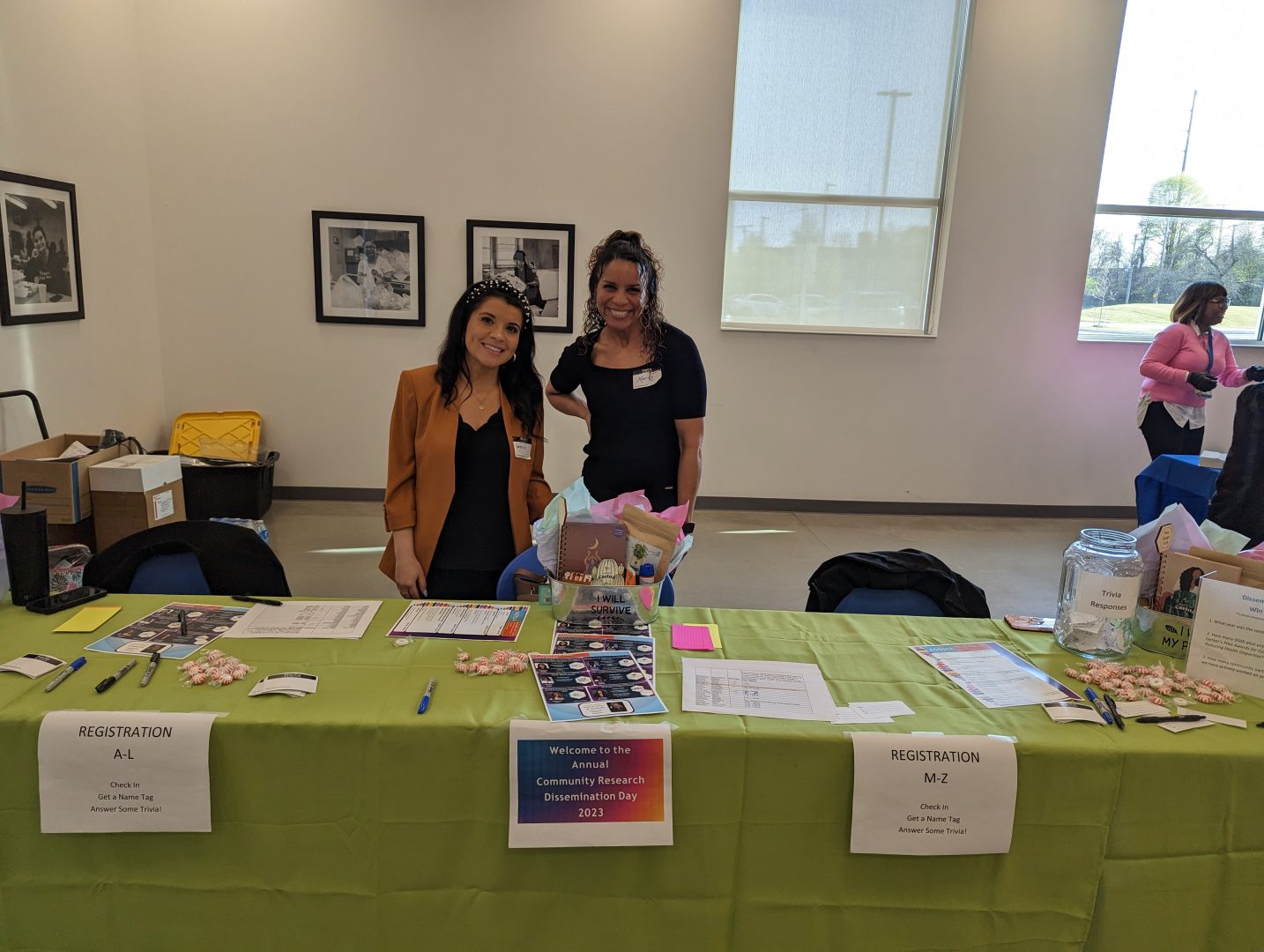
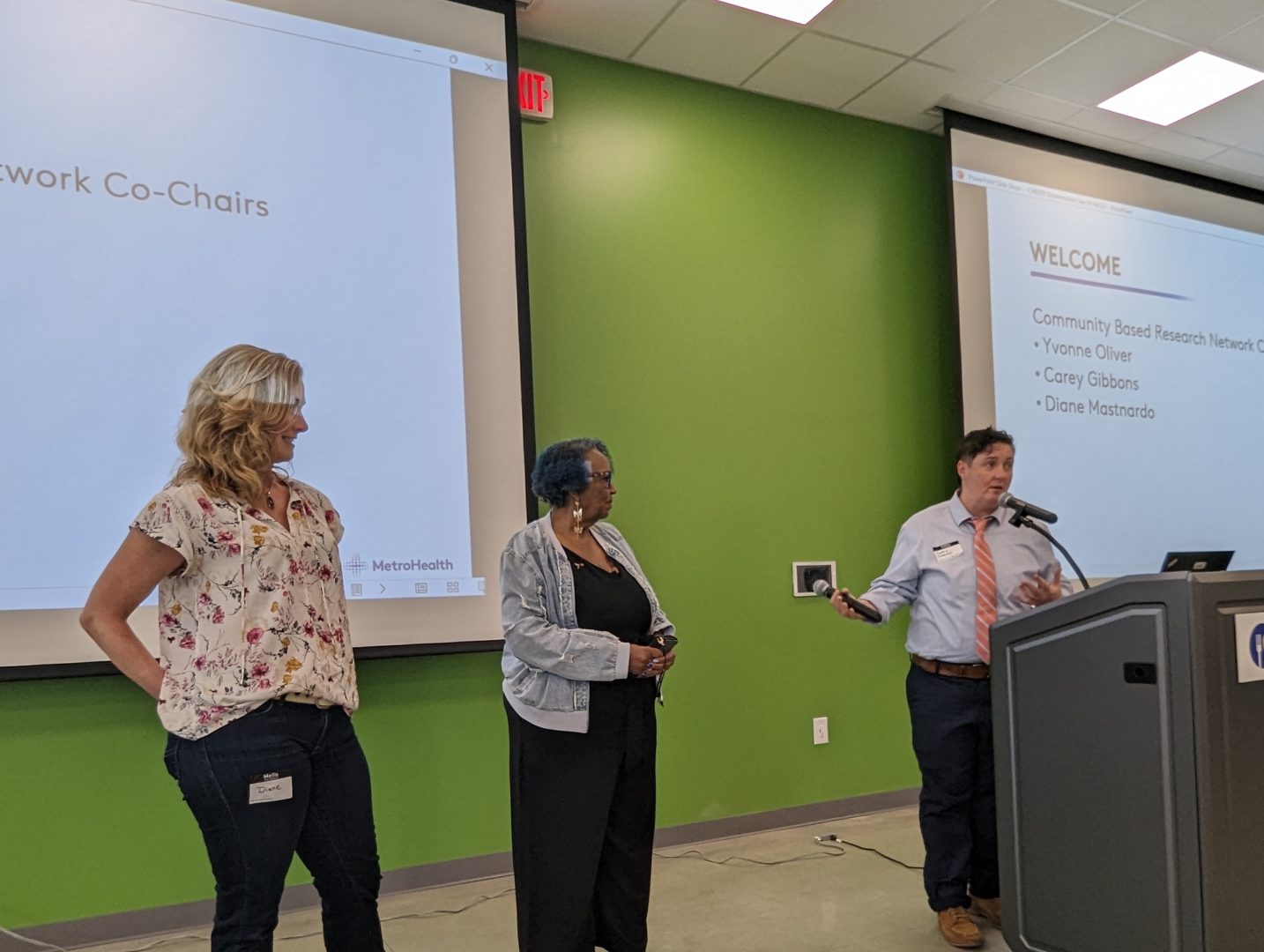
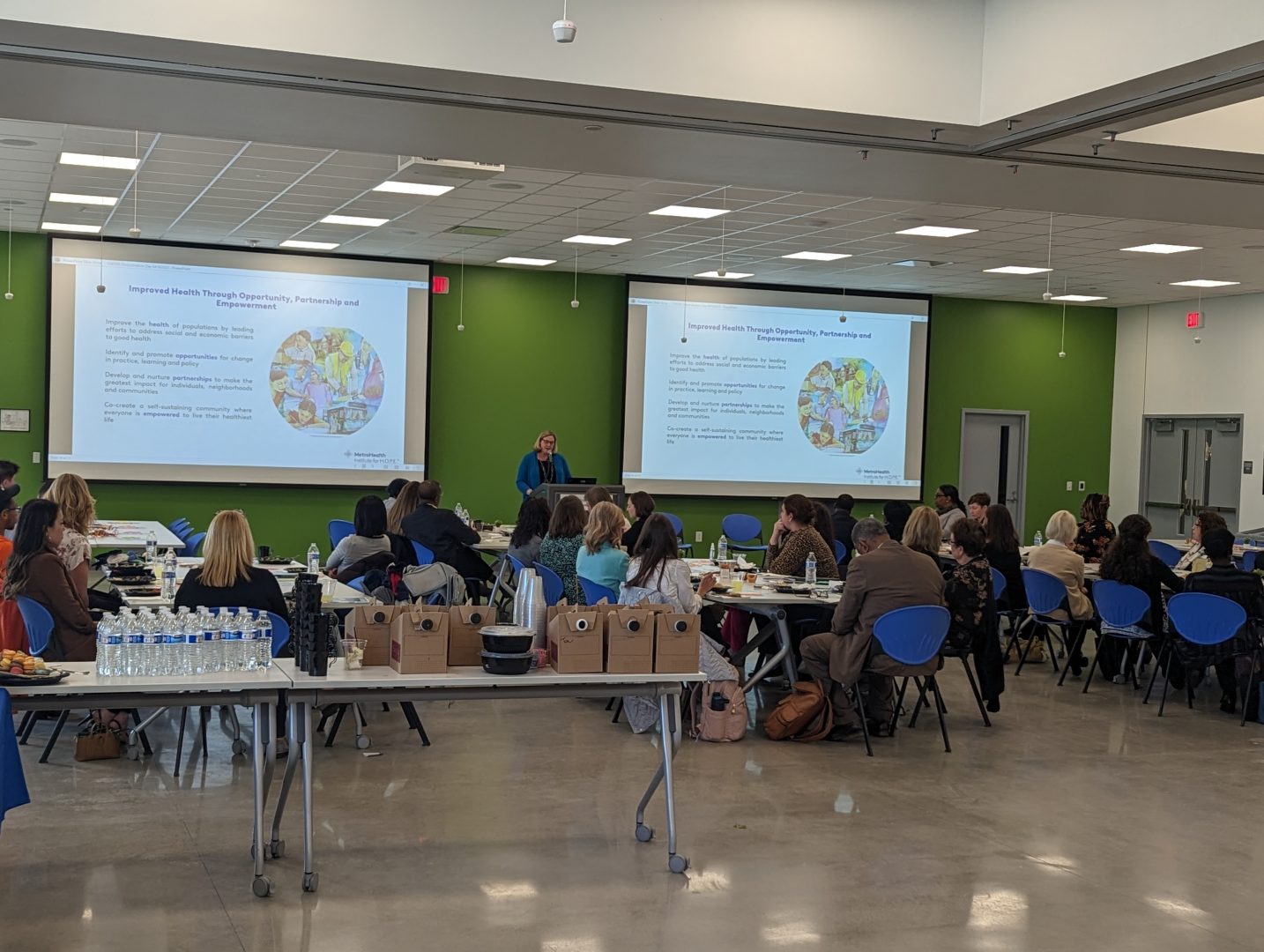

















































































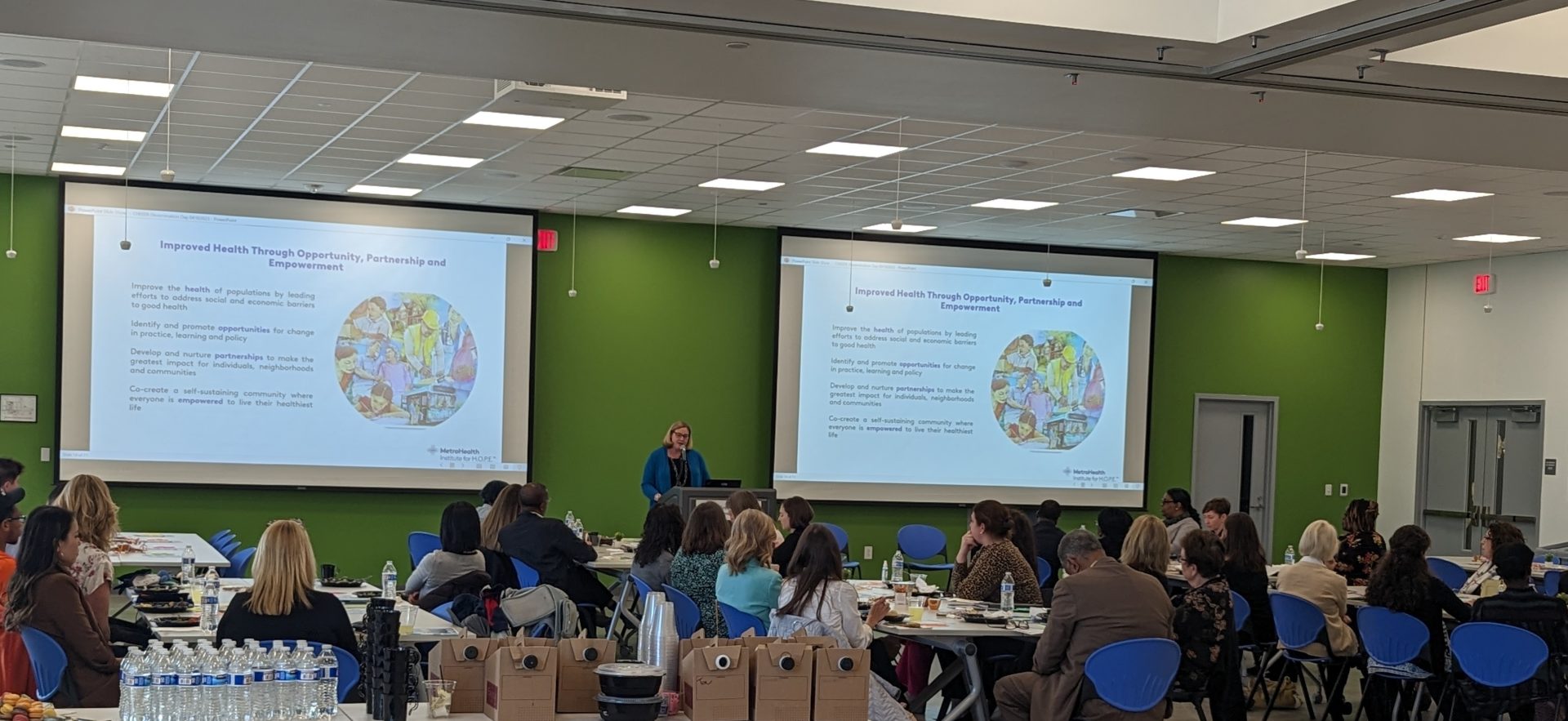
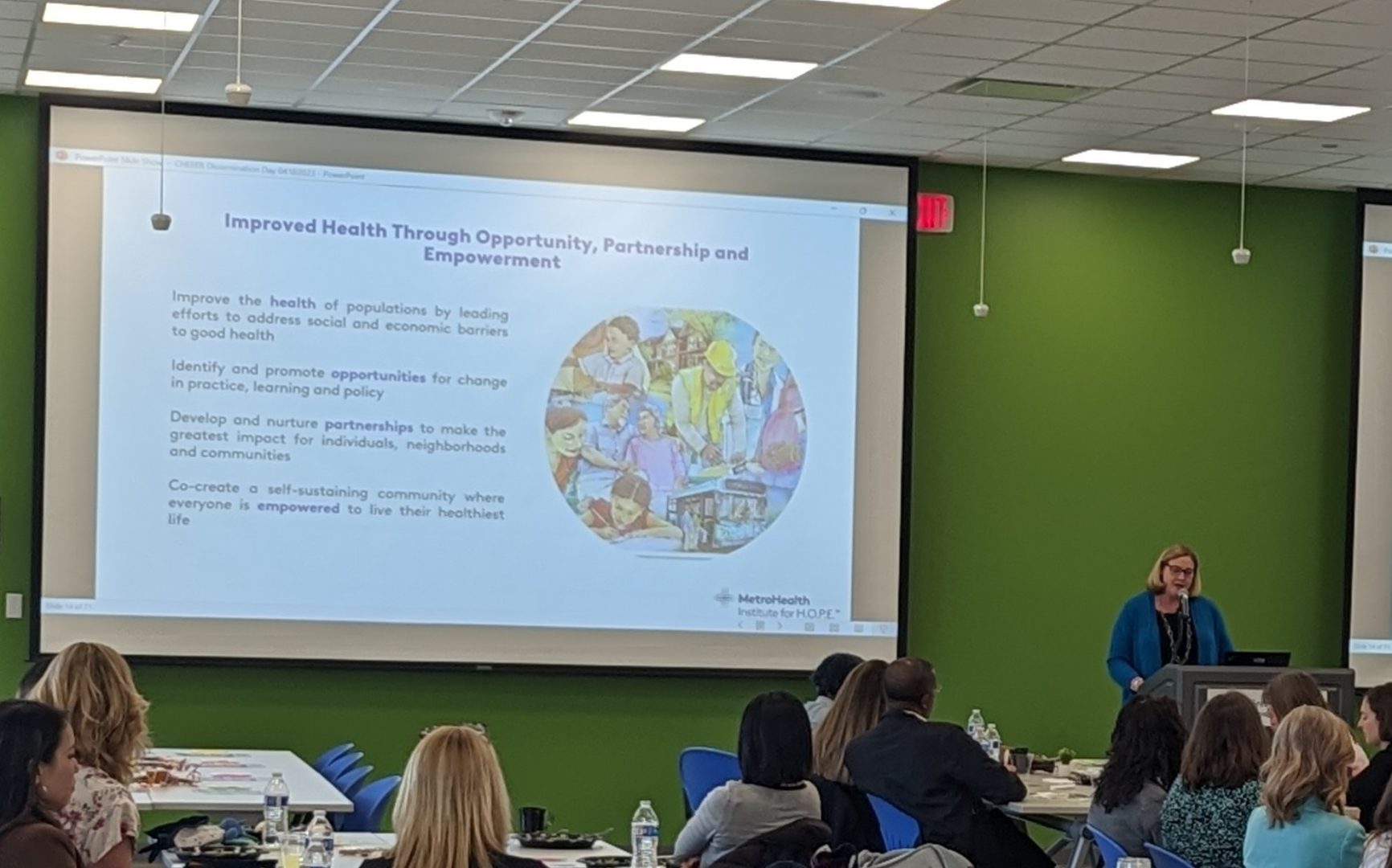
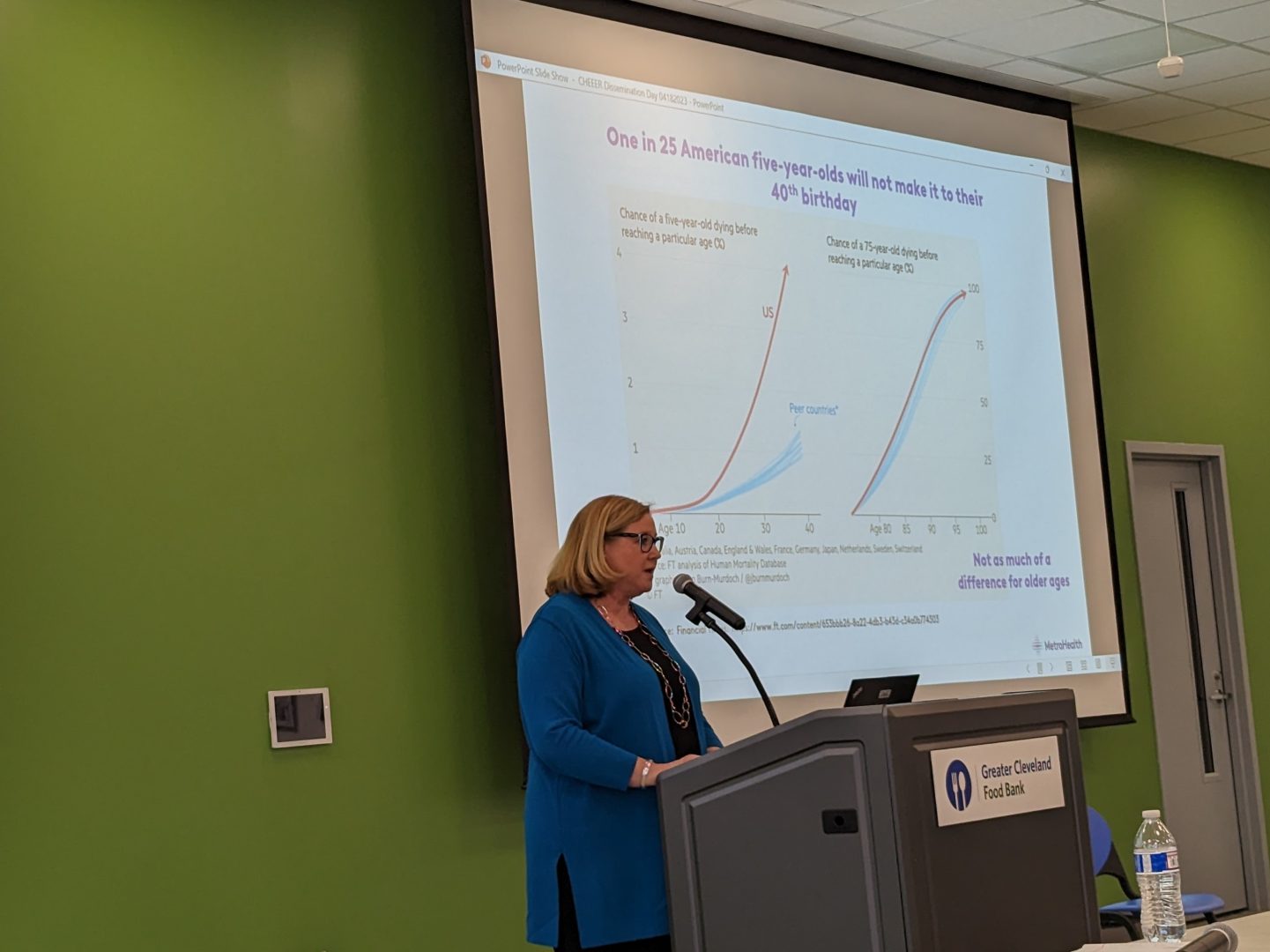
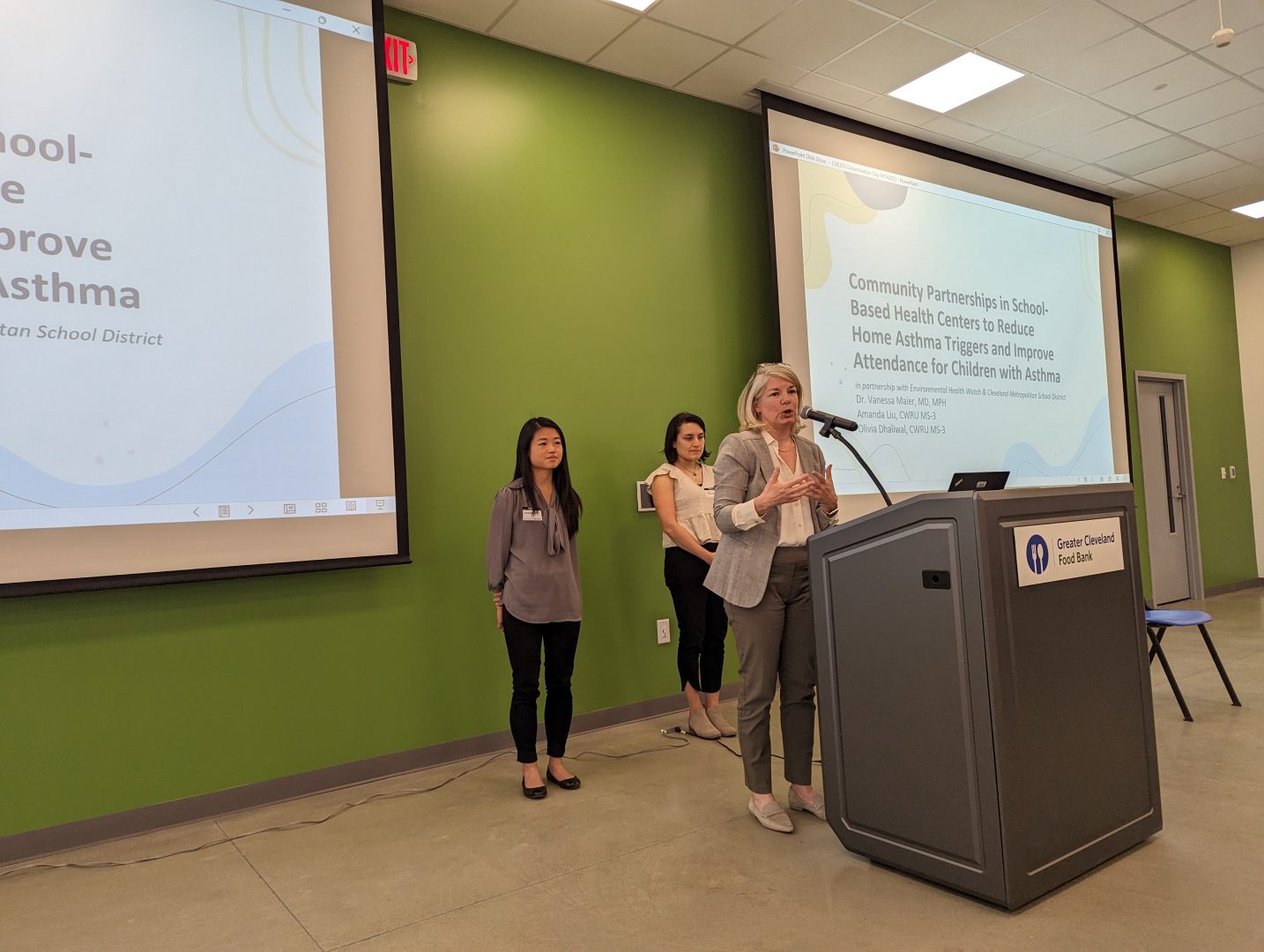
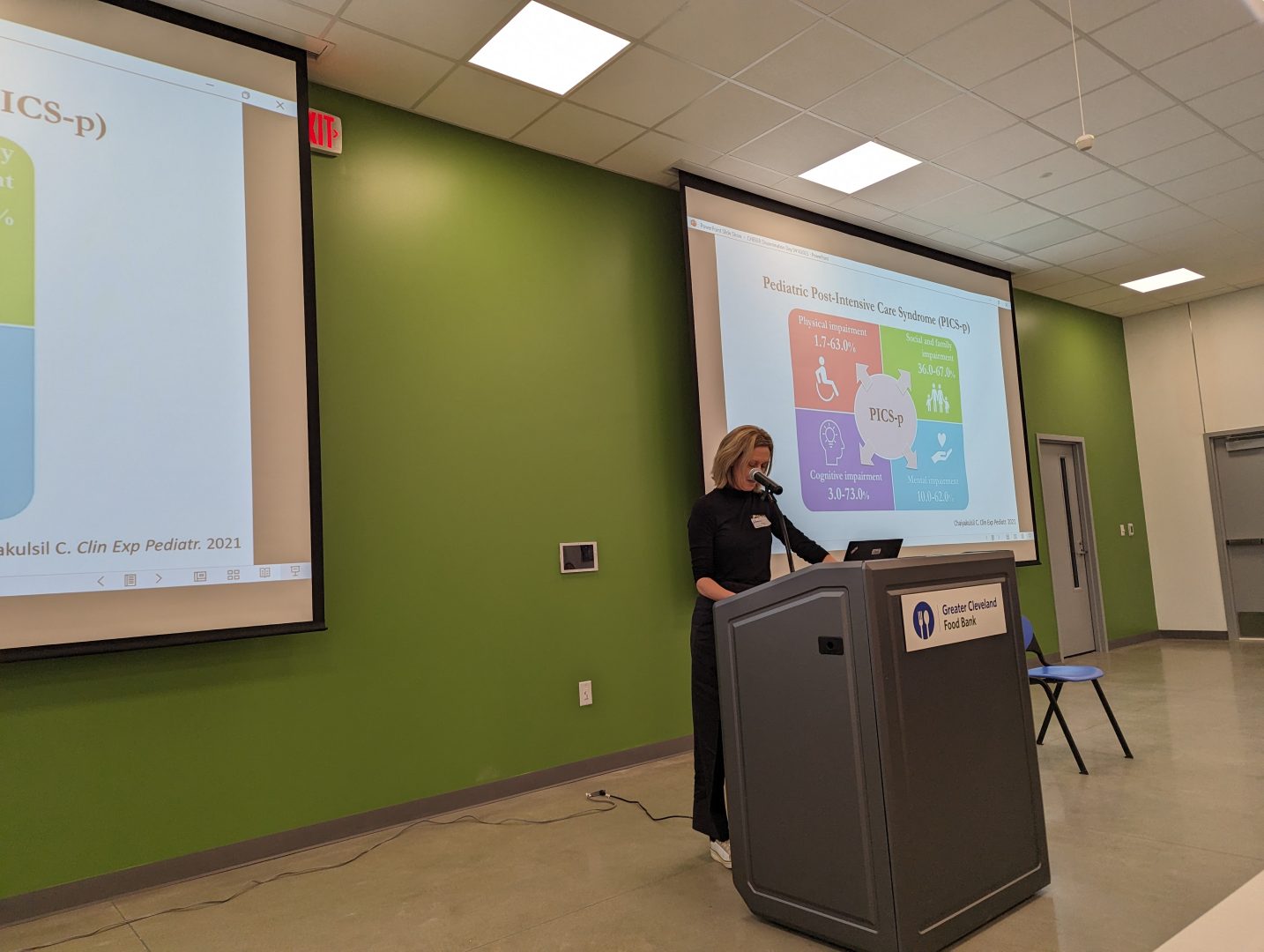
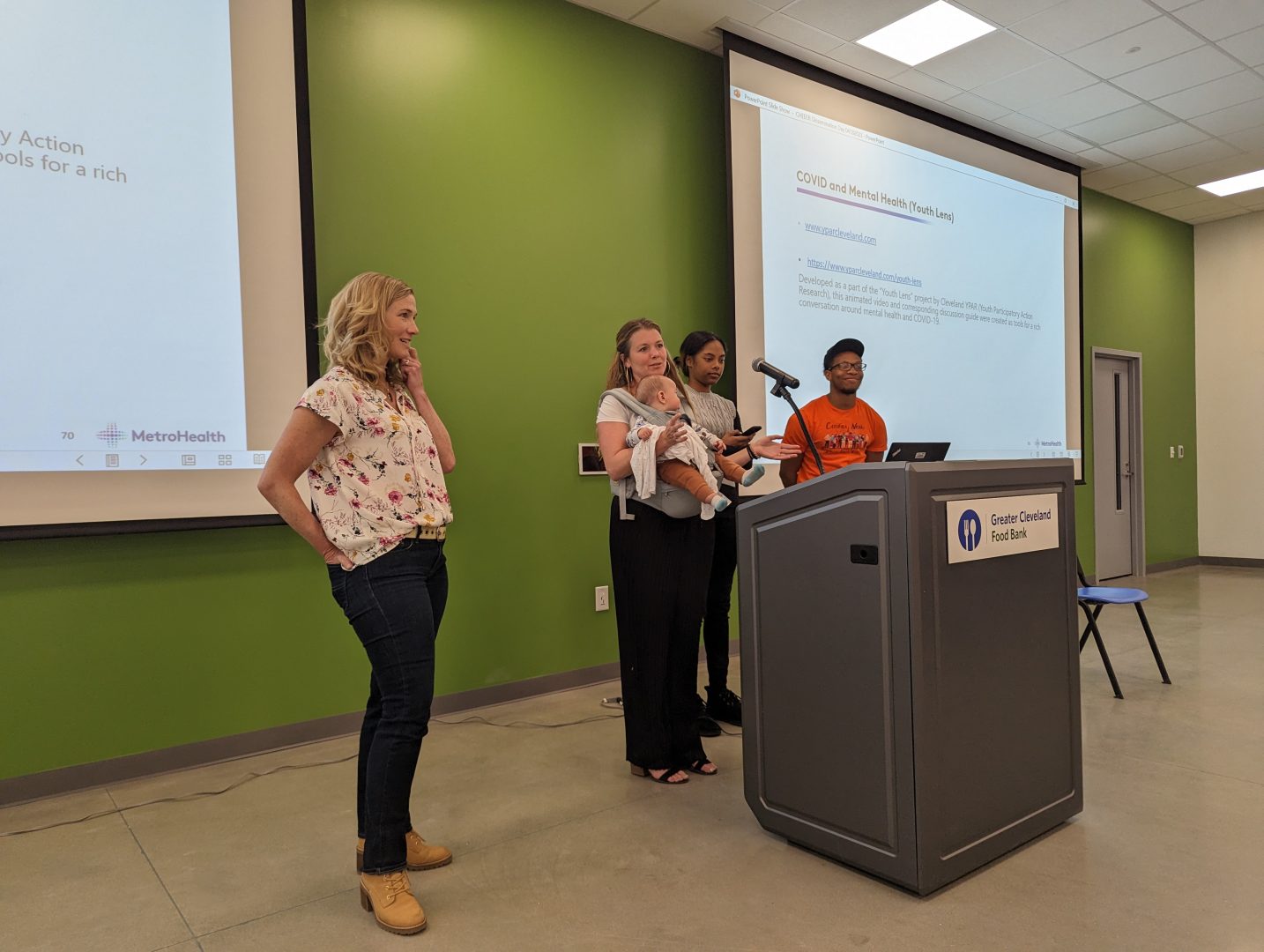
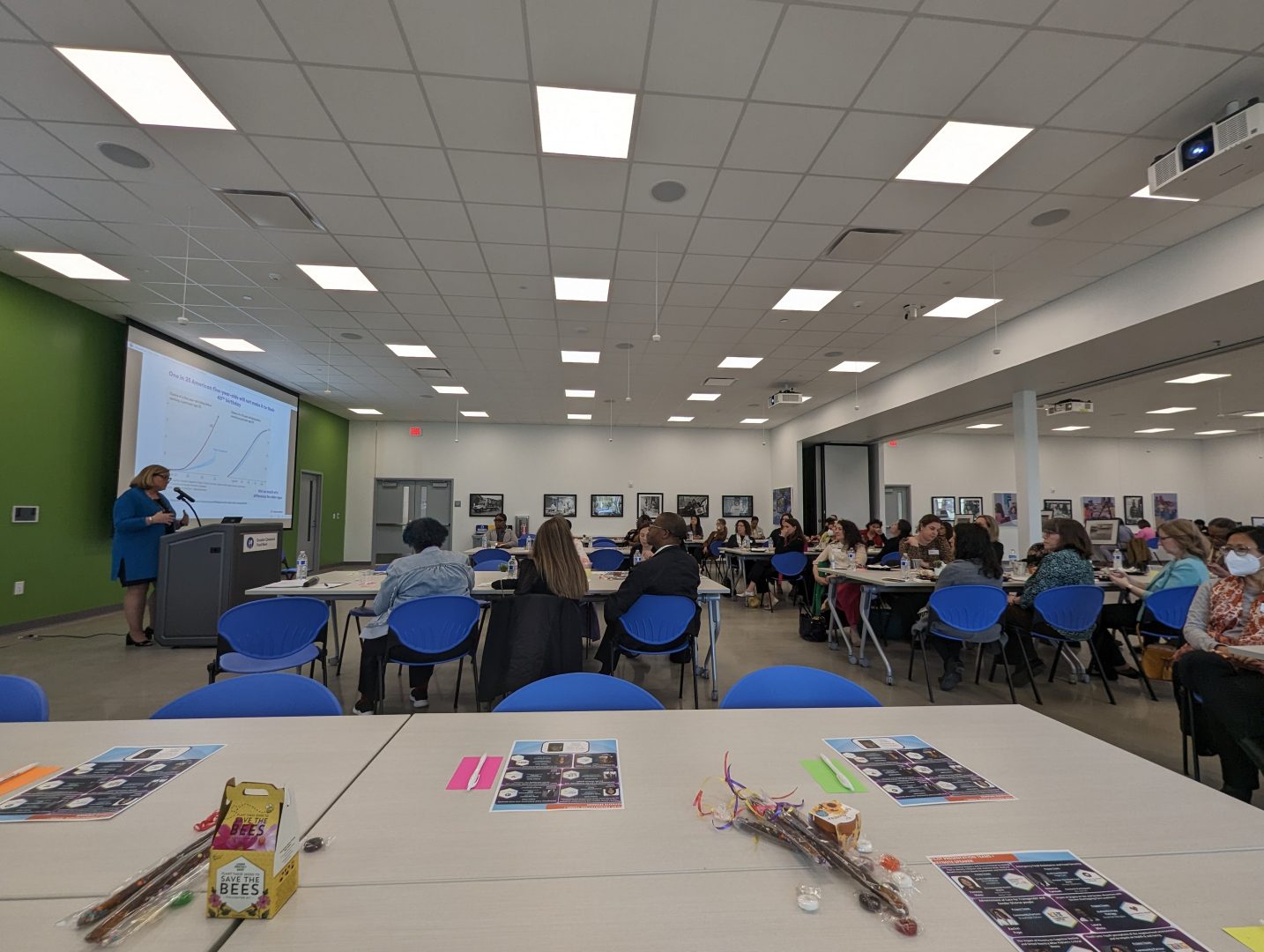



















































































Dissemination Day 2023
Date: April 19, 2023
Location: Greater Cleveland Food Bank
Theme:
Community-Academic Research Partnerships: Successes, Challenges, and Impact in the Communities We Serve
2023 saw the return of the in-person Community Research Dissemination Day. Held at the amazing new space of the Greater Cleveland Food Bank, the 55 attendees included researchers, community partners, research participants and students, all gathered to network and celebrate community-academic partnerships. The two and a half hour event was kicked off by a “health equity confessional” video featuring various CHEEER staff and faculty answering from a fishbowl of questions ranging from what health equity means to them, what is their ideal partnership, and how do they care for their own mental health. These same questions were part of the intro/networking time at the event where guests also chose questions from a fishbowl and answered. The presentation portion of dissemination day was introduced by the three community co-chairs, Carey Gibbons, Yvonne Oliver and Diane Mastnardo who set the stage for what everyone could expect and also how they have been engaged with the center for going on 10 years. Dr. Daryl Thornton announced the new name of the Center for Reducing Health Disparities – now to be known as the Center for Health Equity, Engagement, Education and Research – CHEEER! Keynote speaker Sue Fuerher, President of MetroHealth institute for HOPE then spoke about bridging the gap between the health system and the community, focusing on social drivers of health to truly move the needle in community wellness.
After the keynote, pilot awardee presentations began, featuring various styles from Powerpoints, to dialogues to pre-recorded videos and animations! Community partners and research participants were featured and most definitely shared some of the most poignant moments about being involved in community participatory research.
Following the event, a survey was sent out to the 75 registrants of the event, 55 of who attended. In addition, at the May CBRN meeting where many who attended this Dissemination Day were at, we asked for a “Rose (R) Bud (B) Thorn (T)” in the chat about what everyone liked, where is an area of growth/improvement, and what they didn’t like.
Please enjoy our Dissemination Day 2023 Highlights video as well as our Health Equity Confessionals video, which initially aired during the event.
Dissemination Day 2021
Date: October, 14 2021
Location: Virtual (Zoom)
Theme:
“Addressing community needs and disparities during the COVID-19 pandemic”
Keynote Address: Margaret Mitchell, Executive Director of YWCA
Ash Sehgal (Co-Director CRHD, Director of Research MetroHealth Institute for H.O.P.E.):
“Assessing and Addressing Community Needs During COVID-19”
Community Panel Discussion: “Answering the Call: How Community Organizations Rose to the Challenges of the COVID-19 Pandemic”
Da’Na Langford, Medical Director, Village of Healing, https://www.villageofhealingcle.com/
Elaine Tso, CEO, Asian Services in Action Inc, https://www.asiaohio.org/
Dawn Glasco, Manager of Engagement and Social Innovation, Cleveland Central Promise Neighborhood, https://socfcleveland.org/leading-a-neighborhood/
Elizabeth Benninger, CWRU and CRHD Pilot Awardee “Youth Lens Project”,
Christopher Knestrick, Executive Director, Northeast Ohio Coalition for the Homeless, https://www.neoch.org/
Questions for Panel:
What have you learned? What will you keep doing since COVID?
What are the biggest challenges for the respective community you serve right now regarding COVID-19?
As we know, community engagement and partnerships are at the heart and core of public health, and they are paramount for achieving health equity, how did you navigate serving your community through a lockdown?
Specifically, what partnerships helped you meet the needs of community. Were there any new partnerships that arose or were existing partnerships imperative to making things happen throughout the pandemic?
What were some of the biggest challenges?
What key components, in both programming and the organization as a whole, are sustainable?
How do we continue to serve as the pandemic surges and lingers?
ASIA- Early on we heard much about acts of violence/discrimination within Asian community, how did you combat that? What has continued to happen that may not be in the media?
How else did COVID amplify instances of discrimination?
In the midst of uncertainties and fears (pandemic, civil unrest), what are some “wins” that were celebrated within your organization?
How did you address staff morale and fears?
What things that you did early would you change or mistakes that you felt you could learn from?
Do you feel the size of your agency allowed you to have more flexibility to adapt during the early days of COVID?
Elizabeth- As a researcher, how did this affect you and how did you rely on your community partner?
Dissemination Day 2020
Date: June, 24 2020
Location: Virtual (Zoom)
Theme:
“Lessons Learned from Community Engaged Pilots and Partners”
Pechu Kucha Style (60 seconds per slide – pictures) presentations from First/Second Cohort of Pilot Awardees
Presenters – Johnie Rose, Dana Prince, Heather Hardin, Carolyn Still, Misty Luminais
Community Panel Discussion After Presentations:
Sean Shacklett & Gina Chicotel (Johnie Rose); Gulnar from LGBT Center (Dana & Misty); Carol Pennington (CMSD Heather Hardin)
Questions for Dissemination Day 2020 Community Partner Discussion
One of the main purposes of the pilot project is to help investigators with capacity to engage in partnerships with communities to conduct health disparities research.
- What drew you to the project/Why did you agree?
- How did the PI approach you (how did the partnership start)?
- Lessons learned and next steps for the partnership
- Any way to evaluate the partnership, i.e. meetings, quality control?
- Other plans for dissemination
- Willingness to collaborate by sharing authority, responsibility, and credit for success means adopting an attitude that will allow this to happen, even when decisions are made that the researcher may deem unusual.
- Tells us about your collaboration and how decisions were made
- What were some of the challenges you encountered in your collaboration and how did you resolve the issue?
- What did you learn?
- Biggest contribution/consideration to the study that was perhaps missing?
- What new research pertinent to organization can you see evolving from this study?
- Was there any apprehension to signing on to be a CP? Why?
- Would you be willing to participate in this type of research again in this capacity? (Maybe case by case basis)
Dissemination Day 2019
Date: March 28, 2019
Location: FDR Academy
Theme:
“Updates, accomplishments and challenges of the U54 grant and projects”
The Administration & Dissemination Core hosted the second annual Research and Dissemination Forum at a local elementary school (FDR Academy) in Cleveland’s Glenville neighborhood. This location was chosen over more traditional venues in an effort to reach out to a neighborhood that many of our patients and research participants come from. Think Tank members were consulted on planning the event, which highlighted community voices in a community space as a key element.
More than 50 attendees representing academicians, researchers, community members, and clinical colleagues attended.
A keynote address was provided by FDR Academy’s “wrap around coordinator” who outlined the school’s efforts in bridging health, community and education for its young people. Much focus was placed on efforts from Case Western Reserve University partnering with FDR Academy and its students to partner on various efforts in the community ranging from medical school students as mentors, to helping provide more green space and a soccer field.
The Center’s goal for the forum was to highlight the past year’s research accomplishments, but also to let attendees hear the actual experiences from our Journal Reviewers and Lay Health Advisors describing their work over the past year. We also arranged activities intended to find common ground between academicians/researchers and community members/patients, and presented updates from project managers and Pilot Award grantees.
The event also presented an excellent opportunity for networking as was witnessed by attendees and program managers from the Center who were contacted regarding possible future collaborations following the dissemination forum. A direct result of this event has been noticed as our Community Based Research Network meeting membership has expanded by at least 10 more individuals.
We surveyed those who attended the day after and found the event to be well-received, and also some areas for improvement. See below for some survey highlights:
- 67% of respondents rated the event as Excellent; 26% Very Good; and 6% Good
(“I enjoyed hearing from various people involved, especially the community folk!”)
- 40% of respondents felt the information presented was extremely useful; 47% felt it was Very Useful; and 13% felt it was Somewhat Useful.
(“It was wonderful to see the progression of the research from Year 1 to Year 2. It was inspiring to hear from the lay health advisors about their experiences in the community.”)
- 60% felt the event could be improved by more interactive events
(“I like the activities within the [program] and like hearing from community members as well.”)
- About 80% of respondents felt the venue was Very Good or Excellent
(‘I liked that [the event] was hosted within the community.”)
Dissemination Day 2018
Date: March 27, 2018
Location: Botanical Gardens
Theme:
“Introducing Involving Communities in Disseminating Evidence Based Disparities Research”
Community Dissemination Forum
- CRHD First Annual Dissemination Day on March 27, 2018 showcased the Center’s newest initiatives and projects – introducing the U54 grant, getting feedback on proposed projects
- Attendees included academicians, researchers, clinicians and staff from local medical centers, community members, and representatives from community organizations, among others.
Activities included small group discussions about effective dissemination strategies, concerns about community-based research, ideas to address the challenges faced by community members and researchers working with each other, innovative ways organizations can share research data, and large group word cloud generation around community-engaged research.
